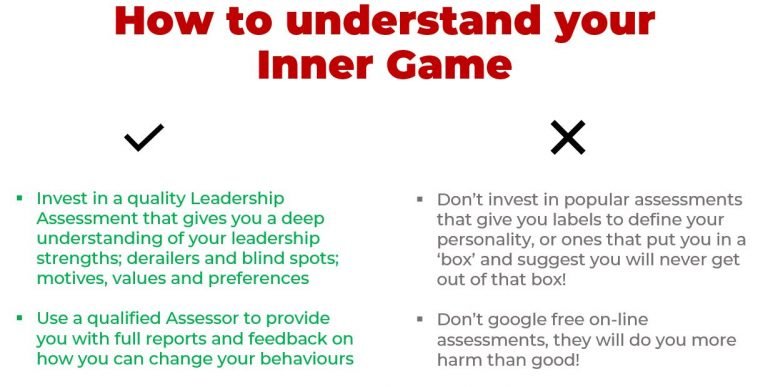Not all leaders will be outstanding
Not all leaders will be outstanding
Bill was a senior leader looking after quite a substantial global team. He was amazing technically in his area of expertise. He had a great understanding of the global context this team had to operate within which was critical to the organisation’s success. The challenge with Bill was how he played his leadership inner game. Bills team was struggling with his leadership style. He would talk a good game in terms of providing a supportive environment and wanting to grow his people, but then he played ‘favourites’ which caused trust issues amongst the team. His team was truly divided. They either thought he was the best leader they had ever had (this would be those he favoured) the remainder of the team were really struggling. Some of those that struggled voted with their feet and left the organisation. This was tolerated for a long time in this company but eventually, something had to be done.
Photo: Jon Tyson on Unsplash
Understanding your inner game
As leaders, there is huge value in understanding how you are playing your ‘inner game’ (how you are when you are at your best; how you are when you are under pressure or stressed; and what your motives, values, and preferences are as these drive your behaviours). These are all the things that when combined, show up as the leadership behaviours we display.
The question is ‘how do we lead ourselves?’ If we don’t have awareness around how we do our leadership, it can be a challenge to shift the dial in a meaningful way so we can contribute, support and be of service to others. Leaders can often be preoccupied with their ‘outer game’ – the team isn’t getting the results they should, or they aren’t getting on as well as they could. The first question we need to ask is, how might I be contributing to what is going on and what change could I make to get a different result?
Benjamin Hardy in his book ‘Personality isn’t Permanent’ talks about the fact that we can decide who we want to be in the future and providing we keep focused on our future self and don’t allow our present or former selves to prevent us from achieving what we want, we can become whomever we want. I also share that philosophy. If you want to become a better or different leader, it’s a decision. Once the decision is made, it’s about making sure that key goal is something you work on every day.
So how do we get these insights to understand how we are doing our leadership now? You want to be working with great information. You might have feedback from your leader, your team and others who interact with you on a regular basis. The key challenge with this data is still understanding what might be causing or driving those behaviours, the things others are perceiving about you. I often see leaders trying to make changes by treating the ‘symptoms’ when what they really need to do is understand the cause. So, the first step is gaining more awareness about how you are playing your inner game by investing in leadership assessments that are highly validated and that don’t limit you in any way. Here a few tips to consider:
It was Eleanor Roosevelt who said, “a good leader inspires others to have confidence in the leader. A great leader inspires people to have confidence in themselves”. You will be able to achieve this if you understand how you do your leadership from the inside out. Only then can you truly understand the impact, either positive or negative, you have on others.
It’s time to decide
Once you have the validated data and information around your inner game, it’s decision time again. Do you accept the information that is in front of you and are you prepared to put the effort into making changes? This is where Bill fell down. He wasn’t prepared to accept that the information around his inner game was valid even though it was supported with all the feedback that had been received from others. In other words, Bill wasn’t ready to commit to his future self, his present self was still very much in the driver’s seat and wasn’t going to vacate any time soon. Bill’s time with the organisation eventually came to an end.
We hear a lot about creating a life by design. I fundamentally believe you can also create your leadership by design, and it comes down to deciding that you want to be a different leader. You might already be a great leader so think about what outstanding would look like – start creating that future self. Daniel Gilbert PhD said, “human beings are works in progress that mistakenly think they are finished”.
I don’t know about you, but I’m certainly not finished.
Lead with Impact,



